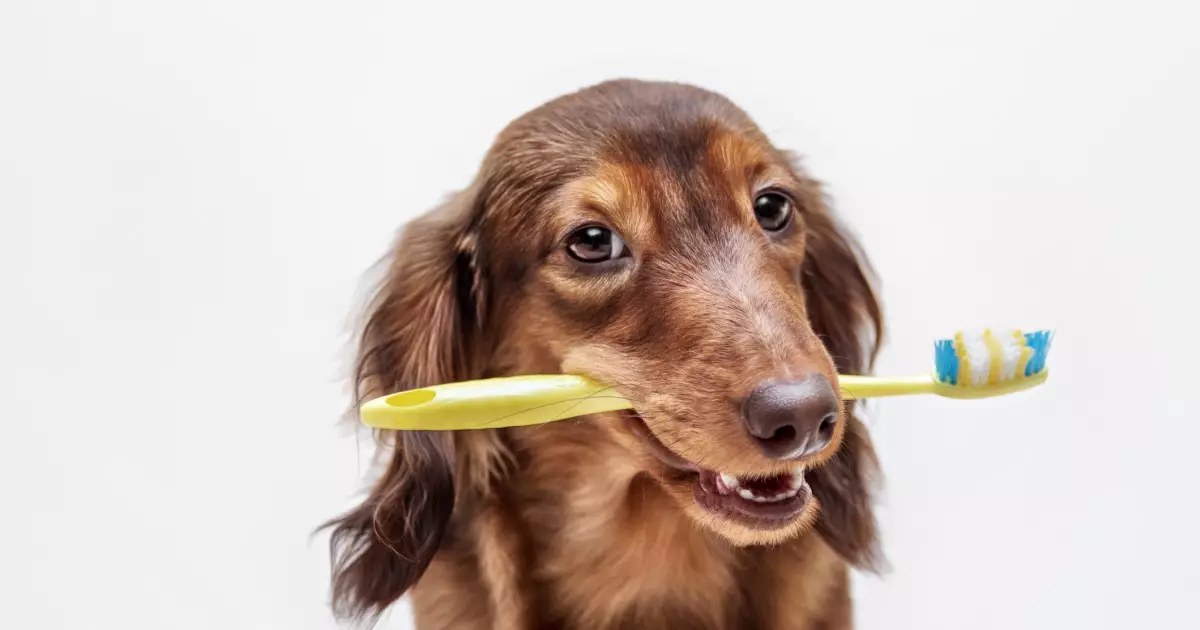Maintaining the dental health of our beloved dogs is often overlooked, yet it’s one of the most crucial aspects of pet ownership. While we may focus on regular feedings and exercise, it’s equally important to recognize that poor oral hygiene in dogs can lead to severe health complications, including infections that can affect vital organs such as the heart, liver, and kidneys. This article will delve into the importance of canine dental care and provide actionable advice for dog owners to ensure their pets maintain healthy pearly whites.
Tartar and gingivitis are prevalent among dogs, and these issues stem from poor dental hygiene practices. Failing to take care of your dog’s teeth can lead to gum disease, which can be quite painful and ultimately lead to tooth loss. Even more alarming is the potential cascade of serious health issues that can follow, emphasizing the need for proactive dental care for our four-legged friends. Regular check-ups with a veterinarian are essential in catching these conditions early. Beyond simple brushing, routine dental visits can identify and manage issues before they escalate into more serious problems.
Brushing your dog’s teeth should be an essential element of their care routine. Initially, the focus should be on making this experience as pleasant as possible. Start with a finger brush to gently familiarize your dog with the process. Your dog’s comfort is key, and using soft, circular motions against their teeth and gums will help ease them into the process. Never use human toothpaste, as it can be toxic to dogs. Once your pooch seems comfortable, you can progress to using a dog-specific toothbrush and toothpaste.
However, it’s crucial to remember that not all dog breeds require the same level of dental care. Smaller or toy breeds, for instance, may need more frequent brushing compared to larger breeds. Establishing a daily routine will cultivate familiarity and make the practice enjoyable for both you and your dog. Rewarding your pet after brushing with a fun activity will further reinforce this positive behavior.
What your dog consumes significantly impacts their oral health. Engaging with your veterinarian to formulate an optimal diet can make a world of difference. It is essential to avoid sharing sugary human foods, as they can exacerbate dental problems and general health issues. Moreover, table scraps can lead not only to oral health deterioration but also to obesity and other related conditions.
Chewing is beneficial for dogs’ oral hygiene, but it’s vital to be careful with the types of items dogs chew on. Dangerous bones, particularly cooked bones, can splinter and inflict internal injuries. Additionally, rawhide bones often pose choking hazards and are treated with harmful chemicals. To ensure your dog’s safety, consult your veterinarian for recommendations on safe chewing options and replace any bones once they shrink to a size where swallowing becomes a risk. When not in use, stowing these items in the refrigerator will help curb bacterial growth.
In addition to brushing and chewing on appropriate bones, engaging your dog with dental health-focused toys and treats can significantly aid in keeping their teeth clean. Specialty dental chews are designed to help reduce plaque and tartar, and they can serve as an enjoyable activity for your pet. Tug-of-war toys made of sturdy materials can also contribute to maintaining oral health while giving your dog a beneficial workout.
As a responsible dog owner, you should monitor your pet while they chew and ensure that the toys and treats are appropriate for their size and chewing strength. Discontinue any toys that show signs of wear, as they can pose choking hazards.
Despite your best efforts at home, there comes a time when professional intervention is needed. Consulting your veterinarian about the best schedule for dental cleanings—typically once or twice a year—will help maintain your dog’s oral health. These cleanings help eliminate built-up tartar that brushing alone cannot address.
For pet parents concerned about anesthesia, consider discussing non-anesthesia dental cleaning options with your vet. While these methods can be effective, they may not deliver the same depth of cleanliness as traditional procedures. Ensure you have thorough discussions with your vet about the most suitable dental care strategies for your dog.
Prioritizing your dog’s dental health is an essential part of pet ownership. From proper at-home care to professional cleanings, taking these steps can prevent serious health complications, keeping your furry friend both happy and healthy for years to come. Remember, dental care is not just about maintaining a bright smile; it’s a vital aspect of their overall well-being.

